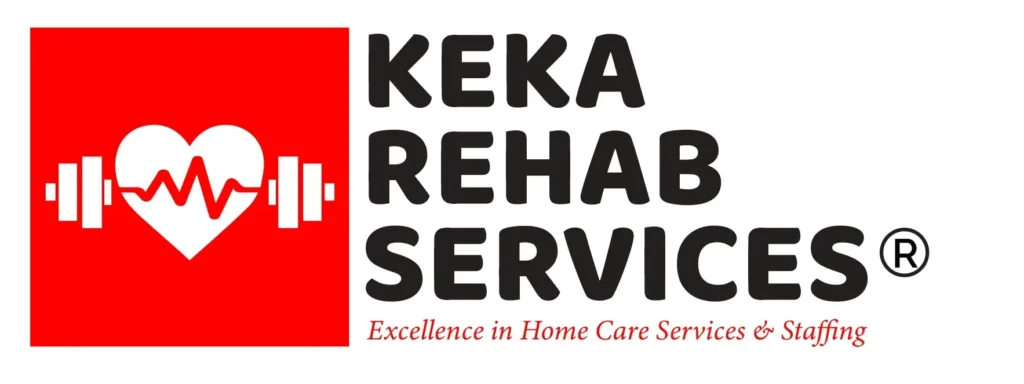Speech therapy can change lives by improving communication and helping with language issues. It gives hope and support to those facing speech and language problems and swallowing and thinking issues. It enables you to improve social skills, do well in school, and grow your career.
Starting with a strong foundation is crucial to speech therapy success. Your journey begins with a detailed check of your strengths and areas for improvement. Therapists then create plans just for you. With active listening and specific exercises, you’ll learn to overcome communication hurdles and speak with confidence.
Speech therapy uses many methods to help with different challenges. Depending on your needs, you might do language activities or try new ways to communicate. With hard work and practice, you can reach your full communication potential and live a better life.
Key Takeaways
- Speech therapy addresses various communication and swallowing disorders
- Personalized assessments guide tailored treatment plans
- Active listening is crucial for adequate therapy sessions
- Techniques include articulation therapy and fluency exercises
- Language enrichment activities boost overall communication skills
- Alternative communication strategies offer new ways to express yourself
Understanding Speech Therapy: A Comprehensive Overview
Speech therapy is a field that helps people with communication issues. It aims to improve how we express ourselves. This overview will cover the basics of speech therapy and its role in bettering our lives.
Defining Speech Therapy and Its Purpose
Speech therapy deals with language, speech, and swallowing problems. Due to certain conditions, kids might have trouble saying words correctly, and adults may struggle with speech fluency.
Common Communication Disorders Addressed
Speech-language pathologists help with many communication issues:
- Articulation problems
- Fluency disorders (stuttering)
- Language impairments
- Voice disorders (dysphonia)
Voice issues can make your voice sound different, like hoarse or weak. Swallowing problems, often from conditions like Parkinson’s or dementia, can be severe.
The Role of Speech-Language Pathologists
Speech-language pathologists are vital in diagnosing and treating communication disorders. They conduct therapy sessions that last 30 to 60 minutes, aiming to improve hearing and speaking clarity. They work in various places, such as clinics, rehab centres, and special schools.
A study by Ismail Khan from the University of Peshawar, published on September 30, 2023, shows new research in speech therapy. This research helps improve treatments for communication disorders.
The Assessment Process in Speech Therapy
Speech therapy starts with an evaluation that examines your speech, language skills, and communication. This process has several steps to determine where you need to improve.
At your first visit, a speech-language pathologist will ask about your health history and what you’re concerned about. This can take up to two hours, making sure they understand your communication needs.

Tests and observations are part of the assessment to check your language skills. Tools like the FCP-R might be used for kids with autism. If you speak Spanish, you might work with a therapist who speaks Spanish, too, as many do.
After the evaluation, you’ll get a detailed report on your strengths and what you need to work on. This report comes within three weeks, either by mail or online. Then, your speech-language pathologist will make a plan just for you to meet your communication goals.
Remember, speech therapy coverage can vary by insurance. Many plans cover it, but some might have rules about specific conditions. Always check with your insurance to know what’s covered.
Speech Therapy Techniques and Strategies
Speech therapy uses many techniques to help with communication issues. These methods focus on articulation, stuttering, making language richer, and voice therapy. Let’s look at some practical ways speech therapists help improve communication.
Articulation Therapy
Articulation therapy helps us say sounds clearly. Therapists use self-talk and describe actions and feelings, which helps kids learn to say words correctly. Flashcards can also help kids remember new words, improving their language skills.
Fluency Techniques for Stuttering
Speech therapists use fluency techniques for those who stutter. These include breathing exercises and changing how fast you speak. They also use open-ended questions to help people talk more and wait 5-7 seconds for answers. This lets people think and plan their answers.

Language Enrichment Activities
Activities for language enrichment boost vocabulary, grammar, and understanding. Reading together can improve language skills by up to 60%. Therapists also repeat correct sentences for kids to try saying. This method helps kids learn language patterns well, with a 70% success rate.
Voice Therapy Exercises
Voice therapy aims to make speaking more precise and more controlled. Therapists use positive feedback to help people feel confident and to encourage them to practice. They might also use sign language to help speak and repeat correct vocal techniques. These methods, along with regular practice at home, can improve language skills by up to 30%.
Augmentative and Alternative Communication (AAC) in Speech Therapy
AAC is crucial in speech therapy. It helps people who find it hard to speak. Conditions like cerebral palsy, autism, or speech delays can significantly benefit from these tools.
AAC has three main types: high-tech, low-tech, and no-tech. High-tech devices change words and messages. Low-tech uses static displays. No tech involves gestures or sign language.
AAC aims to improve communication and grow vocabularies. It’s not just for nonverbal people or kids with autism. Anyone needing help expressing themselves can use AAC.
AAC has core and fringe vocabularies. Core includes common words like nouns and verbs, while fringe is for specific activities.
I don’t see AAC as a last option. It can lessen frustration, boost confidence, and increase independence. A speech-language pathologist can help find the best AAC for you.
Speech Therapy for Different Age Groups
Speech therapy helps people of all ages with their communication needs. Let’s see how it’s customized for different age groups.
Pediatric Speech Therapy
Pediatric speech therapy helps kids develop their communication skills early on. About 1 in 20 kids need help with language, showing why early treatment is critical. Babies start making sounds and babbling by 12 months. If your baby isn’t doing this, getting help is a good idea.
By the time they’re 2, kids should say simple words. If your 18-month-old isn’t talking or is hard to understand, it’s time for a speech check.
Adult Speech Therapy
Adults may need speech therapy for communication issues caused by injury or illness. Conditions like Parkinson’s, oral cancer, stroke, or brain damage can affect speech and language. Speech therapists use tools like workbooks, flashcards, and apps to help adults improve their communication skills.
Geriatric Speech Therapy
Geriatric speech therapy focuses on helping older adults with communication and swallowing problems. It aims to keep seniors independent and happy. Speech therapists work with doctors and other experts to manage speech, language, and swallowing issues.
This team approach ensures older patients get the best care for their communication challenges.
The Impact of Speech Therapy on Quality of Life
Speech therapy can significantly improve your life by making communication easier. It helps in many areas, like social life and work.
Improving Social Interactions
Good communication is vital for making friends. Speech therapy helps you better share your thoughts and feelings, which leads to stronger bonds with others.
A study found that patients with spinocerebellar ataxia type 3 saw better quality of life scores after three months of speech therapy.
Enhancing Academic and Professional Performance
Improved communication can help you do better in school and work. Speech therapy also helps kids improve their reading, which is important for school success.
This helps set the stage for doing well in school and later in your career.
Boosting Self-Confidence and Independence
Speech therapy can make you feel more confident and independent. People often feel less anxious and more hopeful after treatment.
A study of 48 patients with SCA3 showed that they improved their speaking and swallowing after therapy, which improved their quality of life.
Speech therapy helps you handle everyday tasks with ease. It makes things like ordering coffee or sharing feelings easier. This leads to feeling like you belong and less stigma.
This confidence can make you more independent and your life more rewarding.
Speech Therapy in Various Settings
Speech therapy is available in many places for people of all ages. SLPs help with communication and swallowing issues from birth to old age. They are found in schools, hospitals, clinics, and private practices.
SLPs help kids with speech and language problems in schools do better in class. They work on issues like stuttering, articulation, or language delays. Hospitals and rehab centres offer speech therapy for stroke patients or those with swallowing problems.
Outpatient clinics provide many services, like voice therapy and accent help. Some focus on transgender voice therapy or business skills. For those who can’t leave home, there are services for early intervention or limited mobility.
No matter where you go, speech therapy aims to improve communication and quality of life. If you’re having trouble speaking, understanding, or swallowing, an SLP can create a plan just for you. Plus, speech therapy might be covered by insurance if it’s needed for your health.
FAQ
What is speech therapy?
Speech therapy helps people improve their communication and language skills. It treats speech, language, and swallowing disorders with assessments and strategies.
What types of communication disorders does speech therapy address?
Speech therapy helps with many communication issues, including problems with speaking, stuttering, language skills, voice issues, swallowing difficulties, and hearing processing.
Who provides speech therapy?
Licensed speech-language pathologists (SLPs) provide speech therapy. They are trained to diagnose and treat communication and swallowing disorders.
What happens during a speech therapy assessment?
An assessment in speech therapy checks an individual’s communication skills. The SLP looks at speech sounds, language, fluency, and swallowing abilities.
What techniques are used in speech therapy?
Speech therapy uses many techniques. These include helping with speech sounds, stuttering, language, voice quality, and communication methods for those with severe difficulties.
Who can benefit from speech therapy?
Speech therapy can benefit anyone at any age. It helps with developmental disorders in children, adult disorders from injury or illness, and age-related communication issues.
How can speech therapy improve quality of life?
Speech therapy improves communication, helps with social interactions, school or work, and boosts confidence, leading to a happier and more fulfilling life.
Where is speech therapy provided?
Speech therapy is available in clinics, schools, hospitals, and homes. The choice depends on what the person needs for the best treatment.








